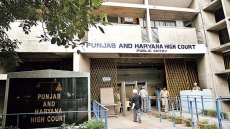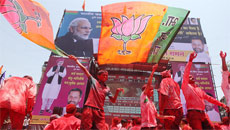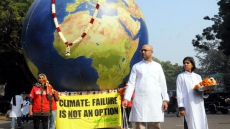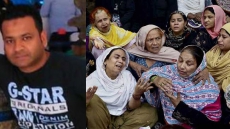Prime Minister Narendra Modi hasn't shown any signs of dictatorship nor is there any chance of an emergency being declared again, says veteran journalist Coomi Kapoor, who has recently authored a book on the draconian measure imposed on the country by Indira Gandhi during 1975-77.
"You can't compare both the leaders. So far Modi hasn't shown any signs of dictatorship. He has a majority only in the Lok Sabha. Emergency is difficult to happen again. Now, no government can control the media easily as it has proliferated," Kapur told IANS in an interview ahead of the 40th anniversary of imposition of national Emergency.
She also debunked the clean chit given by Indira Gandhi's close aide R.K. Dhawan that it was not the former prime minister but senior Congress leader S.S. Ray who had crafted the measure, adding that Indira Gandhi was fully aware of the excesses committed during the time.
"Dhawan is talking nonsense. The emergency was the brainchild of Mrs. Gandhi. S.S. Ray only helped her to implement her plans," said Kapoor, the author of "The Emergency: A Personal History (Penguin/Viking Pages: 389 Price: Rs 599).
Excerpts from the interview:
Q: Your book says that Indira Gandhi had planned the Emergency much before June 1975. How did you come to this conclusion?
A: The general notion about the Emergency is that Mrs. Gandhi imposed it immediately after the court disbarred her as an MP for election malpractices. However, the preparations for stifling expressions of dissent were being planned much before June 26 (1977). A handwritten note by her close aide and the then West Bengal chief minister Siddhartha Shankar Ray, shows that she had plans to introduce the emergency in January. The only reason I could think is the assassination of (then railway Minister) L.N. Mishra at Samastipur because she was rattled by his death. The situation wasn't volatile in the country, as JP's movement was not at its peak and Gujarat was calm after the resignation of the chief minister.
Q: In a recent interview, R.K. Dhawan gave a clean chit to Indira Gandhi, saying that it was Ray who was the architect of the Emergency and he blamed Sanjay Gandhi for the mass sterilsation campaigns and the Turkman Gate demolitions in Delhi.
A: Dhawan is talking nonsense. The emergency was the brainchild of Mrs. Gandhi. S.S. Ray only helped her to implement her plans, sterilisation campaigns and the Turkman Demolitions were done with the full knowledge of Mrs Gandhi. As I mentioned in the book, when Subhadra Joshi, the local MP, went to Mrs. Gandhi to protest against the demolitions, she snapped at Joshi.

Q: Why a book after 40 years?
A: I started out at the insistence of my publisher. I also felt that the younger generation knows very little of what had happened during the emergency. Unlike other books on the emergency, I had the advantage of accessing many valuable documents like the Shah Committee report, B.N. Tandon's diary and the like. My personal life also suffered a lot during the course. My husband was arrested under MISA (Maintenance of Internal Security Act) after a tiff with Ambika Soni. They kept shifting his jails
and with a small baby in tow, I travelled far to visit him. My brother-in-law, Subramanian Swamy, did a Scarlet Pimpernel act, appearing in parliament and then disappearing. The police sent out an alert for him and after that, my family was hounded.
Q: Could you give us a sense of the excesses of the emergency and how the press was muzzled?
A: It was the darkest days for India and for the press. The power supply to newspaper offices cut off for the first two days, so we could not bring out the editions. V.C. Shukla replaced I.K. Gujral as the information and broadcasting minister. Then, there was censorship and we were not allowed to report anything - not even parliamentary proceedings. There were a handful of newspapers which fought valiantly. On the first day after the declaration of the emergency, the police raided the office of Everyman's magazine brought out by JP (socialist leader Jai Prakash Narayan). On June 28, The Indian Express came out with a blank space instead of an editorial. After that, the censors passed a rule banning blank spaces. Quotes from great works of literature or even from the Bhagavat Gita were proscribed. Jokes, cartoons and satirical articles were subjected to censorship.
Q: You have devoted many pages on Sanjay Gandhi, how he ruled over his mother and his wild ways. Why was Indira Gandhi so much dependent on her son?
A: Sanjay Gandhi was his mother's Achilles heel. Whenever her spoilt rebellious son got into troubles, Mrs. Gandhi was quick to protect and defend him. He also knew very firmly what he wanted to do. Long before, June 12, 1975 (when the Allahabad High Court debarred Indira Gandhi, she was already under pressure as complaints were pouring in against Sanjay Gandhi's Maruti (small carO project. Sanjay played a major role in shaping events during the two years of the emergency. However, his mother blindly trusted him and followed what he said. Power was concentrated in the mother and son during the emergency. Sanjay and his coterie were known as the 'palace guards'. It was a puzzle to everyone why Sanjay had a strong hold over his mother.

Q: Did you succeed in decoding Indira Gandhi and her actions?
A: She was an insecure person. Despite all the powers were concentrated on her, she felt threatened. She was deeply suspicious of her colleagues and her party men. Her paranoia about her political colleagues, coupled with her determination to have her own way made Mrs. Gandhi a formidable political contender.
Q: Is there any comparison between Narendra Modi as he also enjoys a majority in the Lok Sabha? Do you see a repeat of emergency?
A: You can't compare both the leaders. So far Modi hasn't shown any signs of dictatorship. He has a majority only in the Lok Sabha. Emergency is difficult to happen again. Now, no government can control the media easily as it has proliferated.





